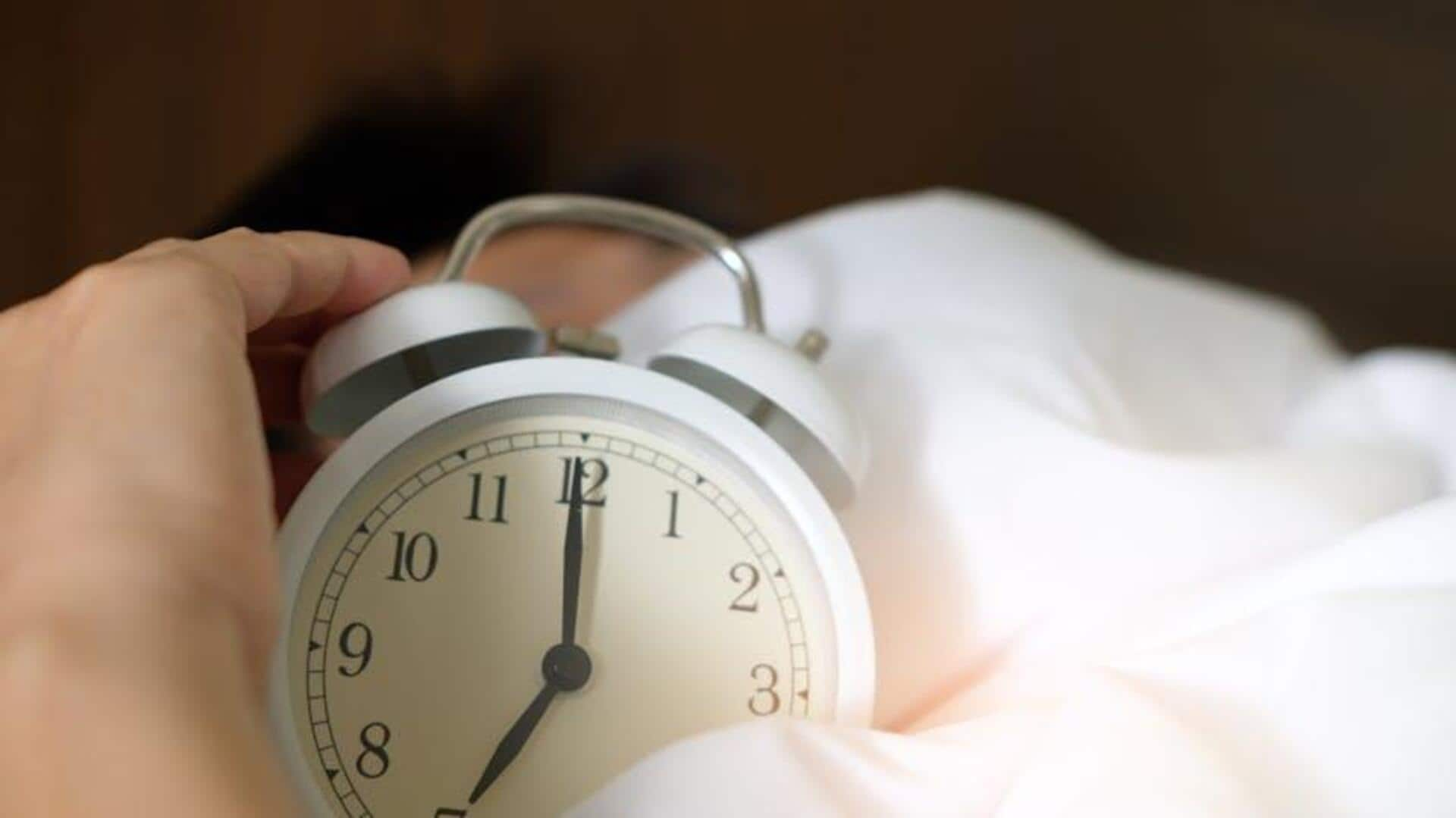
How to create a bedtime routine
What's the story
Establishing a consistent bedtime routine can be a game-changer for improving sleep quality. By following certain practices, you can prepare your mind and body for restful sleep. This article highlights five effective ways to create a bedtime routine that promotes better sleep hygiene. These tips are easy to implement and can help you achieve more restorative rest, leading to improved overall well-being.
Tip 1
Set a regular sleep schedule
Going to bed and waking up at the same time every day helps regulate your body's internal clock. This consistency makes it easier to fall asleep and wake up naturally over time. Even on weekends, try to stick to your schedule as closely as possible to avoid disrupting your sleep pattern.
Tip 2
Create a relaxing pre-sleep ritual
Engaging in calming activities before bed signals your body it's time to wind down. Consider reading a book, practicing deep breathing exercises, or listening to soothing music. Avoid stimulating activities like watching TV or using electronic devices, as they can interfere with your ability to relax.
Tip 3
Optimize your sleep environment
Your bedroom should be conducive to sleep. Keep it dark, quiet, and cool. Invest in comfortable bedding and consider using blackout curtains or an eye mask if necessary. Keeping your bedroom tidy also contributes to a peaceful atmosphere that promotes relaxation.
Tip 4
Limit exposure to screens before bedtime
The blue light emitted by screens can interfere with melatonin production, making it difficult for you to fall asleep. Ideally, you should avoid screens for at least an hour before going to bed. Instead of scrolling through social media or watching videos, opt for activities that don't involve screens.
Tip 5
Monitor your diet before bed
What you eat before bed can affect how well you sleep. Avoid large meals close to bedtime as they may cause discomfort while sleeping. Caffeine and nicotine should also be avoided in the evening hours since they are stimulants that can keep you awake longer than intended.